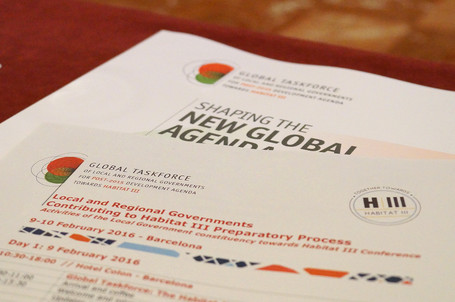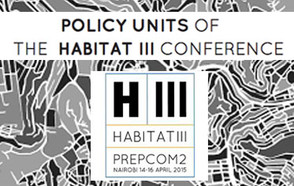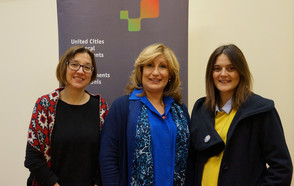
Exchanges between local government practitioners and Policy Experts for Habitat III Policy Unit 4
UCLG hosted the 2nd Expert Group Meeting of the Habitat III Policy Unit 4 on Urban Governance, Capacity and Institutional Development, which is co-led by the world organization, in close coordination with the Global Taskforce (GTF), and the LSE Cities at the London School of Economics. The event was celebrated in Barcelona on 10-12 February 2016.
The session counted on the participation of 16 out of 20 experts from Policy Unit 4, in addition to the co-leaders and the Habitat III Secretariat.
The Policy Unit experts were appointed by the Habitat III Secretary General in 2015, on the grounds of demonstrable competence and geographical and gender balance, in order to identify, within the issues discussed by each Policy Unit, the challenges, policy priorities and action-oriented recommendations related to the implementation of the New Urban Agenda, to be adopted at the Habitat III Conference in October in Quito.
A joint session of the Policy Unit with around 35 practitioners from the Global Taskforce of Local and Regional Governments provided the opportunity to exchange views and present some of the recommendations that experts had been working on. Both groups agreed that the New Urban Agenda will need to address the increasing detachment of the governance systems from citizens and answer to new situations resulting from rapid urbanization. The groups also called for local democracy and decentralization to be at the core of the Quito outcomes.
An important agreement among the group of experts and practitioners was that the approach to the New Urban Agenda should refer not only to cities, but also to the surrounding territories, both rural and urban.
It was also agreed that the Habitat III outcomes could not be understood in isolation and the links with the 2030, Climate and Financing for Development Agendas will be instrumental if true transformation and development are to be achieved.
The approach to the New Urban Agenda should refer not only to cities, but also to the surrounding territories, both rural and urban.
Strengthened and renewed multi-level governance, adequate metropolitan governance, enhanced participatory processes and robust capacity building systems were some of the cornerstones of the urban governance needed to face the challenges in the future. An urban governance that will need to respond to the increasing demand for the right to the city as a strategic approach to combat exclusion, the promotion of sustainable and equitable development, and the promotion of territorial equity. The Policy Papers were submitted to the Habitat III Secretariat on 29 February. Please follow UCLG and the GTF2016 to get regular updates.













